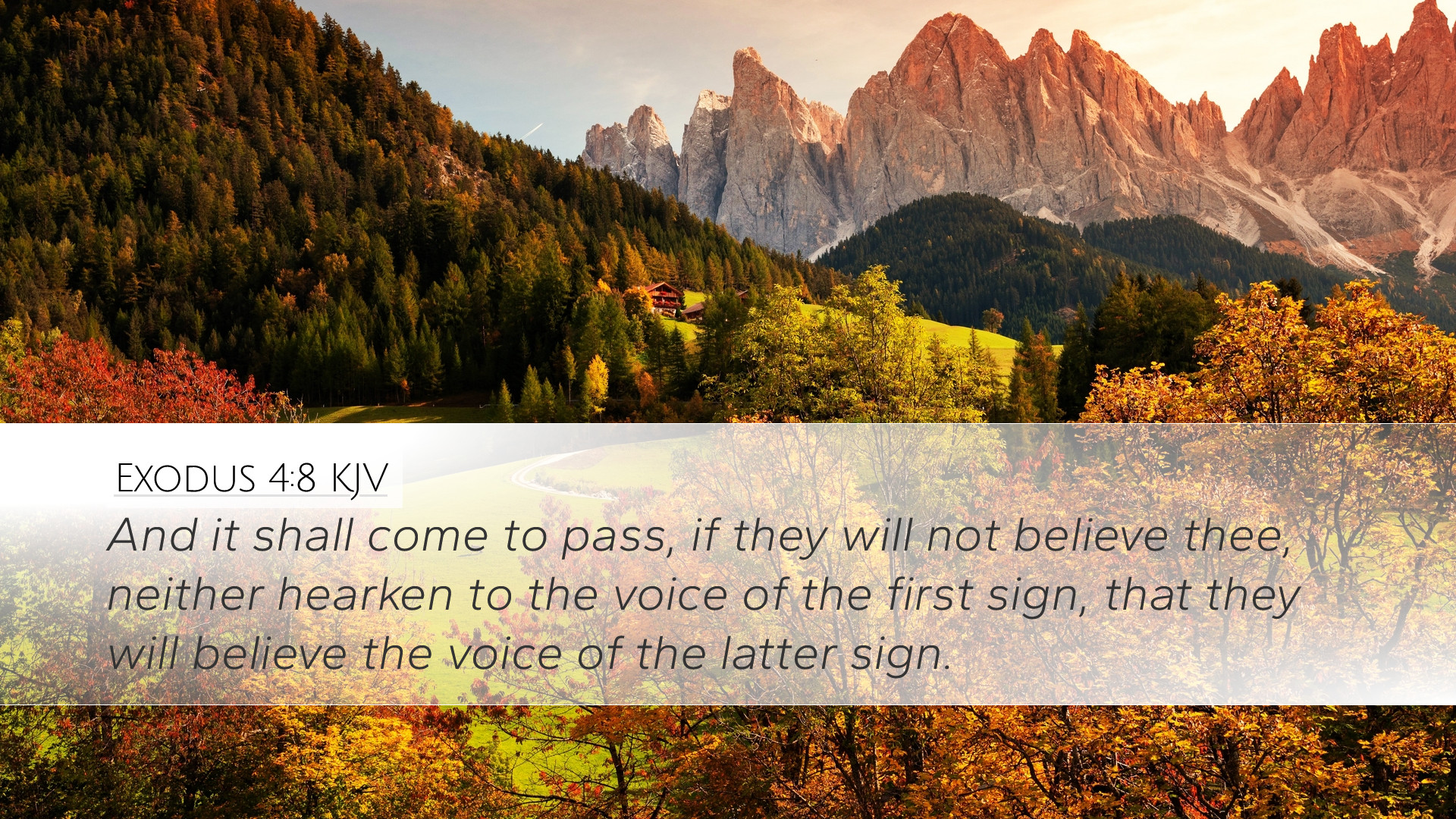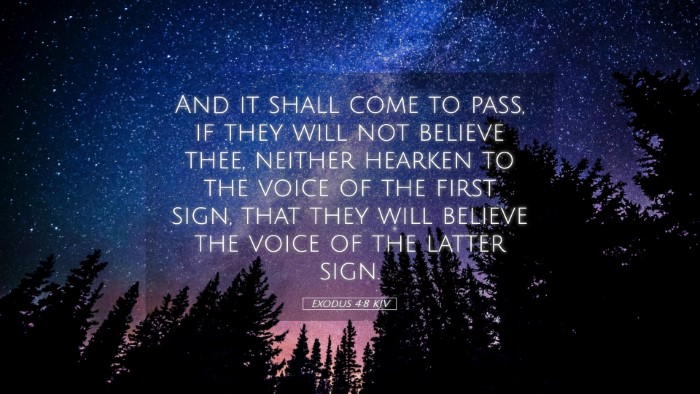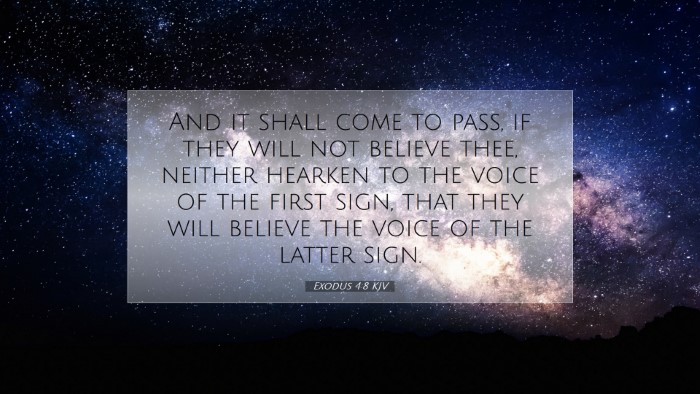Commentary on Exodus 4:8
Bible Verse: "And it shall come to pass, if they will not believe thee, neither hearken to the voice of the first sign, that they will believe the voice of the latter sign."
Introduction
This verse is a pivotal point in the narrative of Moses' commission as the leader of the Israelites' exodus from Egypt. In this context, it serves to illustrate the signs that God provides as validation of His messengers. Commentators through the ages have explored the implications of disbelief and the merciful provisions God makes for faith.
Context of the Passage
Moses stands before God, presenting excuses for his lack of confidence in his calling. This verse follows God's reassurance and details the supernatural signs that would confirm Moses' divine mission. It is crucial to recognize that the signs serve a dual purpose: they are both evidence of God's power and a measure of human disbelief.
Insights from Matthew Henry
Significance of Signs: Matthew Henry emphasizes that the signs are not merely demonstrations of power but are intended to inspire belief in those who witness them. Henry notes that God’s choice to provide signs acknowledges human frailty in faith. He remarks, “The Lord knew that the people would be slow of heart to believe.”
Encouragement in Disbelief: Furthermore, Henry suggests that God provides multiple signs to encourage the wavering faith of both Moses and the Israelites. The phrase "if they will not believe thee" captures the reality that divine signs alone may not suffice to convince the unbelieving. Henry stresses the importance of heart readiness to receive God’s message.
Insights from Albert Barnes
Examining the Signs: Albert Barnes presents a robust examination of the signs outlined by God. He notes that the “first sign” refers to the transformation of Moses' staff into a serpent, and the “latter sign” is the miraculous healing of leprosy. Barnes outlines that these signs serve distinct themes: authority (in the first) and compassion (in the second).
Nature of Belief: Barnes further elaborates that belief is a process that often requires multiple confirmations. “God accommodates Himself to human weakness,” he states, which translates into the need for varied signs to foster faith. This highlights the interplay between divine agency and human response.
Insights from Adam Clarke
Philosophical Underpinnings: Adam Clarke takes a deeper philosophical approach, probing into the nature of signs as they relate to divine revelation. Clarke postulates that signs must transcend mere wonder for true belief to take root; the moral implications of the miracles must resonate within the hearts of the spectators.
Biblical Themes of Rejection: Clarke also addresses the tragic reality of human rejection of divine truth. He reflects on the Israelites' future hard-heartedness as foreshadowed in this verse. In his understanding, the miracles serve not only to persuade but also to expose the willing blindness of the heart. Clarke utilizes this insight to challenge readers to examine their own receptivity to divine guidance.
Theological Implications
This verse raises important theological themes concerning God’s approach to disbelief. The argument from signs asserts God's continuing revelation to humanity. God’s willingness to provide confirmation has implications for pastoral ministry, highlighting that ministers should be patient in leading their congregations toward faith.
Practical Applications
- Patience in Ministry: Just as God equipped Moses with signs, pastors are encouraged to find innovative ways to convey truth that resonate with their congregants.
- Understanding Unbelief: This text can help scholars and theologians acknowledge that disbelief can stem from various sources, including social, emotional, and intellectual factors.
- Signs of God's Presence: In contemporary applications, the signs in the church may not be miraculous in the traditional sense but can take the form of testimonies, healing, or changes in lives that are equally significant in faith discussions.
Conclusion
Exodus 4:8 challenges believers to remain engaged with the narrative of God’s enduring faithfulness amidst human frailty. The rich commentary derived from classical scholars underlines the complexity of belief and the significance of divine signs. For pastors, theologians, and students alike, understanding the implications of this verse provides both a theological framework and practical focus for fostering a robust faith community.


